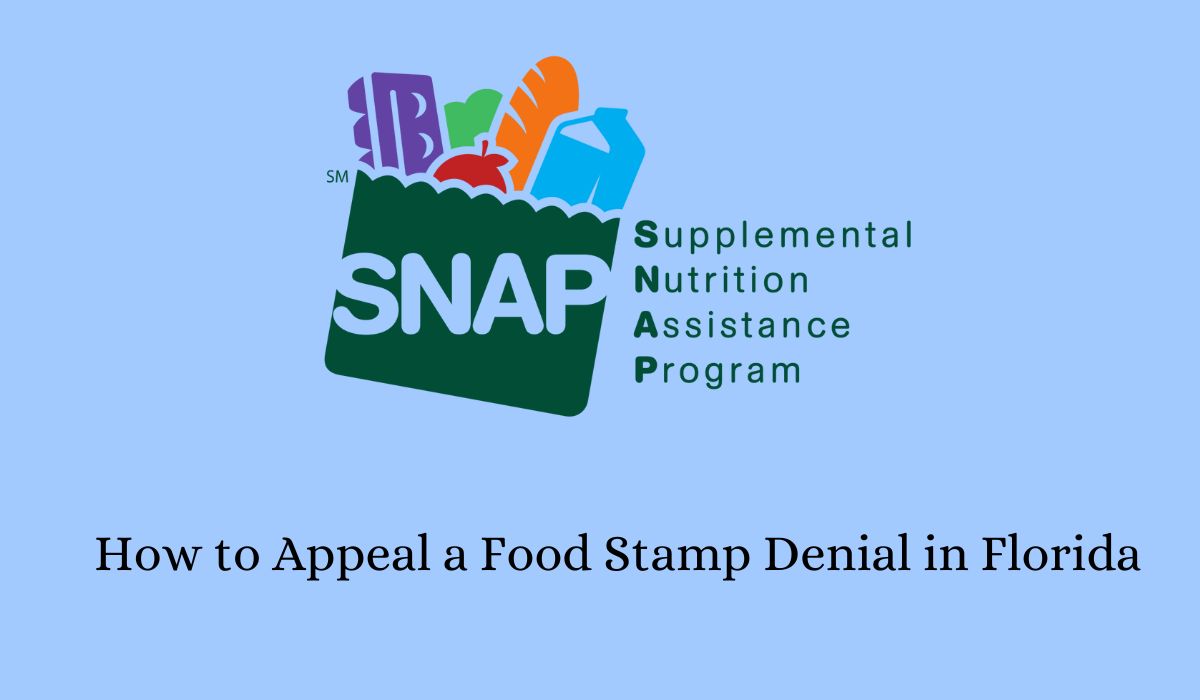The Florida Department of Children and Families (DCF) provides food assistance programs for eligible low-income individuals and families. However, there may be instances where your application for food stamps is denied. If you believe that your application was wrongfully rejected, you have the right to appeal the decision.
Reasons for Food Stamp Denial
Before we discuss the appeals process, it is important to understand the common reasons for food stamp denial. These may include:
- Not meeting the income requirements
- Providing incomplete or incorrect information on your application
- Owning valuable assets that exceed the limit
- Not being a United States citizen or a qualified immigrant
If you have been denied food stamps for any of these reasons, you can still request an appeal.
Steps to Appeal a Food Stamp Denial
1. Understand the Reason for Denial
- Review the Notice: Carefully read the denial notice sent by DCF. It should explain why your application was denied.
- Gather Information: Collect any documents or information that might support your case or address the reasons for the denial.
2. File an Appeal
- Time Frame: You typically have 90 days from the date on the denial notice to file an appeal.
- How to File: You can file an appeal in several ways:
- Online: Through your MyAccess Florida account.
- By Mail or Fax: Send a written request to the address or fax number provided in your denial notice.
- In-Person: Visit a local DCF office to file your appeal.
- Include Necessary Information: Your appeal should include your name, address, telephone number, case number, and a brief explanation of why you are appealing.
3. Prepare for the Hearing
- Notification: After filing your appeal, you will receive a notice of hearing, which includes the date, time, and location of the hearing.
- Gather Evidence: Collect any relevant documents, such as income statements, medical records, or correspondence with DCF.
- Witnesses: Consider if any witnesses might support your case.
4. Attend the Hearing
- Administrative Hearing: The hearing will be conducted by an impartial hearing officer.
- Present Your Case: Clearly explain why you believe the denial was incorrect. Provide evidence and let any witnesses speak.
- Remote Participation: In some cases, you might be able to participate in the hearing by phone or video conference.
5. Receive the Decision
- Written Decision: After the hearing, the hearing officer will send a written decision to you, usually within 30 days.
- Outcome: The decision will either uphold the denial or instruct DCF to provide you with benefits.
6. Further Action
- If Denied Again: If your appeal is not successful, you can seek legal advice to explore further options.
- Reapply: If your circumstances change, you can reapply for food stamps at any time.
Tips for a Successful Appeal
- Be Organized: Keep all your documents and notes well-organized.
- Be Punctual: Arrive on time for your hearing.
- Seek Assistance: Consider seeking help from a legal aid organization or a lawyer who specializes in SNAP benefits.
Conclusion
If your application for food stamps in Florida is denied, don’t lose hope. You have the right to appeal the decision and potentially receive the benefits you need. Follow the steps outlined in this article to begin the appeals process and increase your chances of a successful outcome.
Remember to provide all necessary information and evidence to support your case at the hearing. So, don’t hesitate to take action and pursue your appeal. With determination and proper preparation, you may be able to successfully appeal the food stamp denial in Florida. Good luck!
